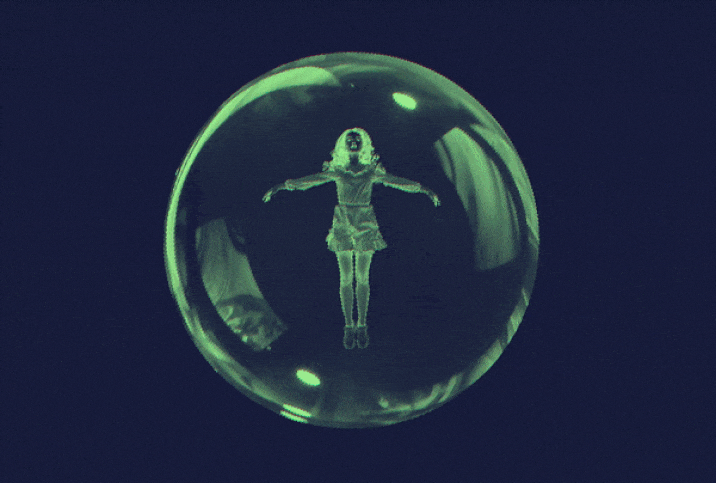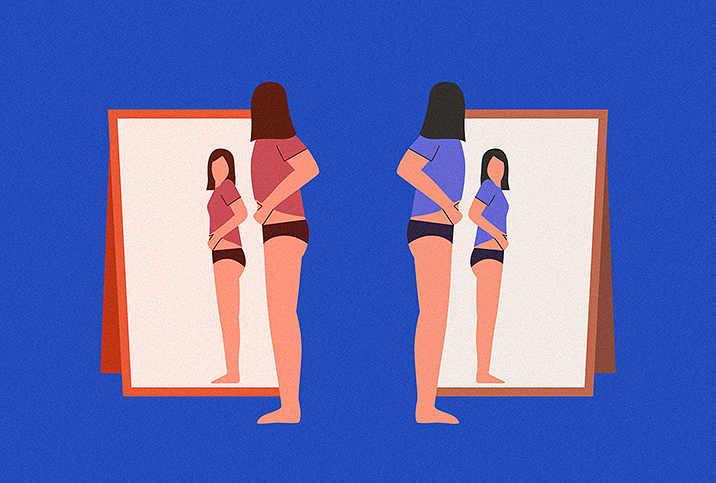The Facts About Depersonalization/Derealization Disorder

When playing a video game, you, the player, make decisions for your character. You choose when they go left or right, fight or flee, and how they generally go about life within the context of the game.
For individuals with depersonalization/derealization disorder, this sensation of third-person spectating becomes reality, as if they are persistently having an out-of-body experience, observing themselves from the outside or under the belief things around them aren't real.
Depersonalization/derealization can give life a disturbing, dream-like quality, where nothing seems real and everything feels "off" or disconnected.
Symptoms and causes
It's not uncommon for anyone to have fleeting, rare moments of depersonalization or derealization. However, for people with depersonalization/derealization disorder, these feelings are the norm and may seem like they'll never go away.
People with this disorder often note that the symptoms are hard to describe. Some people may also experience symptoms of depersonalization or derealization, though others may experience a combination of both.
Depersonalization describes a set of symptoms that leave you feeling unfamiliar with yourself. This condition can cause you to feel like you're an outside observer of yourself, even down to things such as your senses, your thoughts and your body. Depersonalization can also manifest as emotional and physical numbness, a sense that the world around you is dull and distant, and that your memories are not your own.
Derealization, on the other hand, happens when you feel completely unfamiliar with and foreign to your surroundings. This can lead you to feel emotionally disconnected from those around you. Perceived distortion is another common symptom of derealization, in which time may seem to pass irregularly or your perception of the size of the things around you and how near or far away they are is completely off.
Depersonalization/derealization disorder typically appears during a person's mid- to late-teens, and in rare cases during childhood, according to the Mayo Clinic.
Getting treated
Depersonalization and derealization may happen in episodes that last for a few hours, but they can also extend for days or months and may get worse over time. Some people feel the symptoms never really stop—they just alternate between mild and severe or somewhere in between. If your symptoms are affecting your quality of life, becoming disturbing or harmful to your emotional health or are persistent or recurrent, you should talk to a doctor.
Experts are still unsure of the exact causes of depersonalization/derealization disorder, though they believe certain personality traits, genetics, severe trauma or stress, depression, anxiety or the use of recreational drugs may contribute to and increase a person's risk for developing the disorder at some point in their lifetime.
According to the Mayo Clinic, psychotherapy is the primary treatment for depersonalization/derealization disorder, although medication is sometimes used to manage the symptoms caused by the condition itself.
Psychotherapy, including psychodynamic therapy or cognitive behavioral therapy (CBT), is intended to help you manage and control your symptoms, learn coping mechanisms and understand the root causes of your depersonalization and derealization.
If you're struggling with depersonalization/derealization disorder, don't hesitate to talk to a mental health professional for help and to lean on your emotional support system. Overcoming mental health struggles may not be easy, but you don't have to do it alone.


















